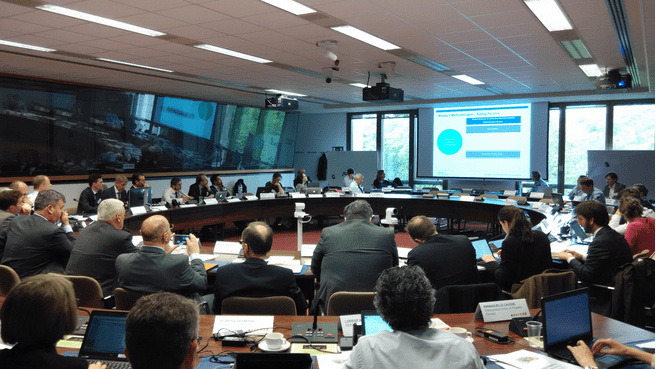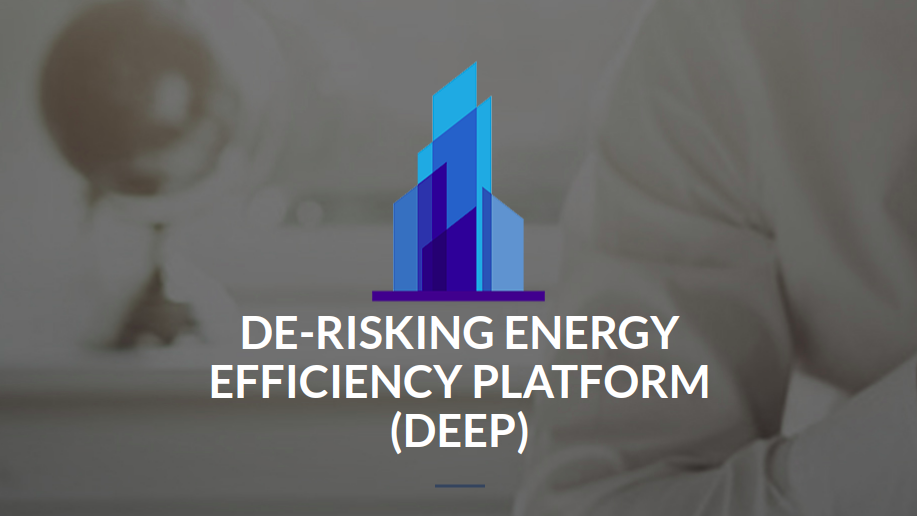 Finance & Economics
Finance & EconomicsFinance & Economics
I moderated a webinar on energy efficiency for the IPFA as part of their energy transition series. This may be the last in the series but believe me, this is the most important element of the energy transition. I actually like the less common term, energy productivity, but let us stick with energy efficiency. I just want to go through some of the important characteristics of energy efficiency. Energy efficiency is the largest, cheapest and quickest energy resource that we have. The average reported paybacks are 5 years for buildings and 2 years for industrial projects. Despite this economic attractiveness many potential projects do not proceed because of other priorities of the project host, lack of internal capacity to develop projects, or shortage of investment capital. And normal investments in building refurbishments and industrial facilities or new buildings and facilities often often often have rapid paybacks. and. are often. prolonged paybacks because. of buildings and industrial projects often.
Read Full articleEurope’s steel industry and the need to decarbonise
Europes steel industry needs a credible plan to go green, says Ben Jones. The costs of decarbonising its operations would cost up to €40bn. Jones raises a question whether consumers will be demanding greener steel and be willing to pay for.
Read Full articleHow do we finance industrial energy efficiency?
The EU has focused on the Emissions Trading System to bring results but it has not been that successful in achieving energy efficiency. This week the Energy Efficiency Financial Institutions Group (EEFIG) will have a meeting of a new Working Group on industrial energy efficiency.
Read Full articleGoing DEEP
The Energy Efficiency Financial Institutions Group (EEFIG) has over 15,000 projects. They provide a good indication of the risk factors involved in energy efficiency. The website has been updated to show Internal Rate of Return (IRR)/ Net Present Value.
Read Full articleInvesting in improving energy efficiency is industry's chance to be part of the post-pandemic economic recovery
The European Commission presented its European Green Deal investment Plan. The plan is to mobilise at least €1 trillion of sustainable investments over the next decade. In March 2020, the Commission also published its industrial strategy. It aims to reduce red tape .
Read Full articleReflections on the recent 2020 EEFIG plenary
The Energy Efficiency Financial Institutions Group (EEFIG) held its annual plenary session in Brussels. EEFIG was established in 2013 by the European Commission Directorate-General for Energy (DG Energy) and the United Nations Environment Programme Finance Initiative (UNEP.
Read Full articleHow Energy Efficiency and Renewables will benefit from COVID-19
Since 1900 only three events had a greater impact on global energy demand than COVID-19: the Spanish flu, the Great Depression and World War II. Can we already predict the near and/or long term impact? Likely not. But we need.
Read Full articleCentral banks need to prepare for climate change
There is mounting evidence that climate change and environmental degradation pose an existential threat. Climate change drives policy-makers into a state of self-examination, says Andrew Hammond. He asks: Is the hallowed principle of ‘market neutrality still relevant in light.
Read Full articleResponding to Coronavirus: Low-carbon Investments Can Help Economies Recover
The COVID-19 pandemic is first and foremost a human tragedy. The virus has also hit society like a global tsunami, disrupting travel, cutting off communities. Chinas industrial output has dropped 15% to 40% since the crisis began.
Read Full articleZero waste system: Rebuilding capital for a circular economy
The number of zero-waste city projects is growing in Asia. But traditional development capital for waste systems is often misaligned with zero waste approaches. Incineration is the most expensive waste treatment system for construction, maintenance, and operations.
Read Full article








